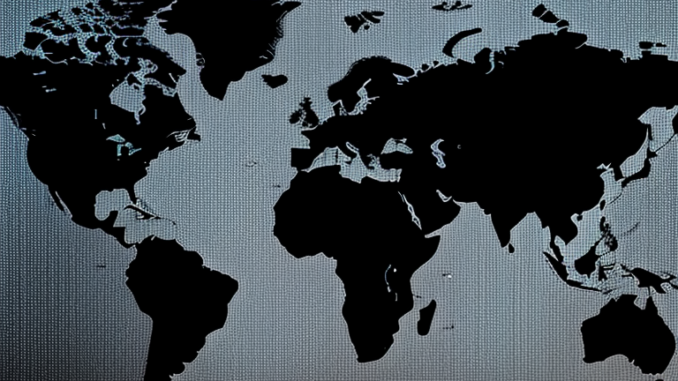
In recent years, cybercrime has been increasing due to advances in technology and the interconnectedness of the digital age. This has led to the use of sophisticated tools and techniques by cyber criminals, resulting in significant financial losses and broader social and geopolitical consequences.
According to a World Bank report, cyber-attacks could cost the global economy $5.2 trillion between 2019 and 2023. This emphasizes the urgent need for global cooperation in addressing this growing problem. World leaders recently met at a G20 Conference in India to discuss the rise of malicious cyber activities that violate established norms and international law.
One major concern is the use of cybercrime by terrorist organizations. They are using technology to radicalize individuals and finance their illicit activities. Platforms like the darknet, metaverse, and cryptocurrency provide opportunities for spreading ideologies and generating funds, posing a significant challenge to global security. Union Home Minister Amit Shah of India compared this shift to the use of dynamite and hawala, highlighting the changing security landscape.
India alone has reported over 1.6 million cybercrime cases in a three-year period starting from 2019. The targeted attacks on critical information and financial systems are a serious threat that requires coordinated prevention and mitigation strategies. G20 member countries have been urged to improve real-time information sharing and collaboration to effectively combat cybercrime.
Another concerning aspect of cybercrime is the spread of fake news and deepfakes. These techniques can incite social unrest and erode trust in legitimate news sources. The loss of credibility in the media can have far-reaching consequences for society and democracy as false information spreads quickly. It is important to address this issue and preserve the integrity of information in the digital age.
To confront cybercrime, an international convention to counter the criminal use of information and communication technologies (ICTs) is crucial. With advances in artificial intelligence, non-fungible tokens (NFTs), and the metaverse, global cooperation in cybersecurity is necessary. The recent G20 Conference in India highlighted the urgency to unite and take collective action against cybercrime.
Addressing this complex challenge requires a multi-pronged approach. Governments and law enforcement agencies need to allocate resources for robust cybersecurity infrastructure and skilled personnel. Increasing public awareness and education on cyber threats and safe online practices are essential for individuals and organizations to protect themselves.
Collaboration between the public and private sectors is vital. Technology companies and social media platforms must take responsibility for detecting and removing malicious content. Developing advanced tools to identify deepfakes and prevent their spread is crucial for maintaining trust in media sources and combating misinformation.
In conclusion, cybercrime is a significant global security challenge with financial losses being just the beginning. Governments, international organizations, and the private sector must work together through cooperation, cybersecurity measures, and public awareness initiatives. Only through collective efforts can we safeguard the digital age and protect societies from the dark side of technology. Action is needed now.

Be the first to comment